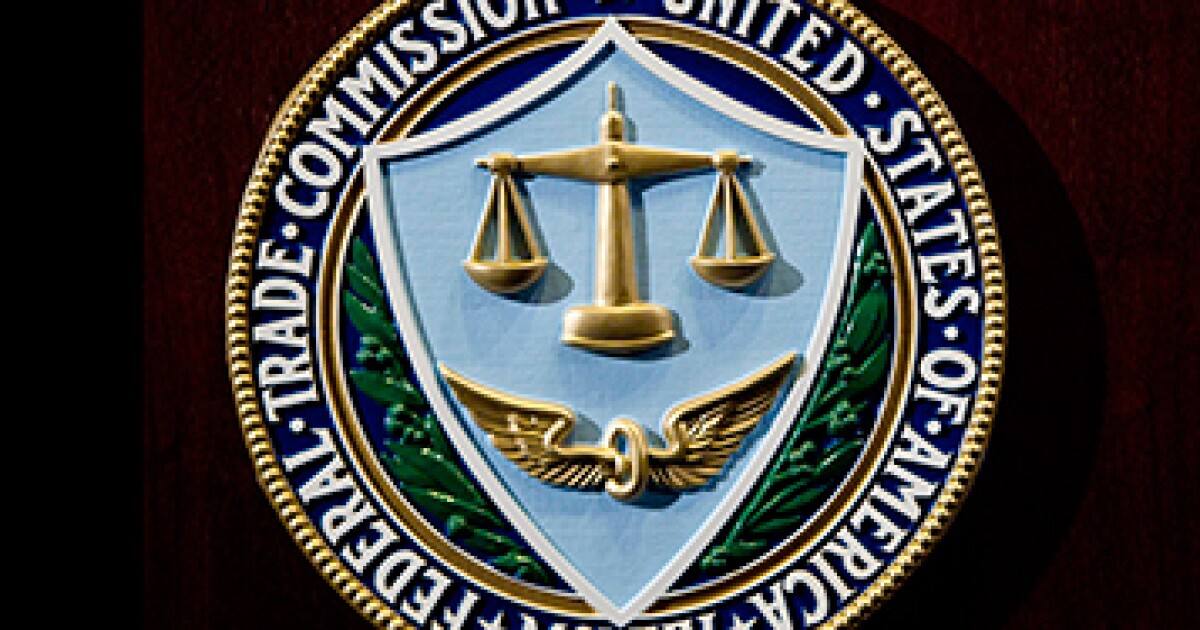
The Federal Trade Commission is looking to lower regulators "barriers" and enact policies that embolden new entrants — something analysts believe could expose banks to greater competition from nontraditional financial institutions.
The FTC issued a
"Regulations that reduce competition, entrepreneurship, and innovation can hamper the American economy," said FTC Chair Andrew N. Ferguson in a written statement. "These need to be eliminated or modified to revitalize a competitive market."
The Trump administration has prioritized deregulation as part of its pro-growth agenda, but it has also appears to have retained some of the antitrust stances of the Biden administration.
Unlike other agencies — such as the Consumer Financial Protection Bureau, which have
For banks, a more pro-competition stance by the FTC could cut two ways. On the one hand, it could give smaller banks a leg up in trying to compete with their larger peers. On the other hand, it could also keep the bar for large bank merger and acquisition activity high and result in lower barriers to entry for nonbank financial institutions.
In a policy note, analysts from Federal Financial Analytics said the inquiry this week will likely attract the attention of both traditional banks and novel upstarts alike.
"Given the market impact of eliminating rules that might open access to unique bank privileges such as the payment system and interest on reserves, comment is sure to come not only from banks seeking more latitude, but also from nonbanks protesting constraints on their ability to compete with banks," the note states.
The note also highlights merger and acquisition policies as a likely area of focus for commenters.
"The RFI is short and open-ended, but provides wide scope for industry, consumers, prospective new entrants, and others to target what they believe to be problematic rules the President could then order rescinded or modified under the broad grant of power he has accorded himself in other recent orders," the note states.
While bank mergers and acquisitions are approved at the discretion of primary federal regulators — namely the Federal Reserve Board of Governors, the Federal Deposit Insurance Corp. or the office of the Comptroller of the Currency — the FTC also reviews combinations to ensure their non-bank components are not anticompetitive. The Department of Justice also oversees bank M&A to ensure surviving entities would not be in violation of antitrust laws.
Coming into the new administration, many banks assumed they would have an easier time merging under a Trump-led government than they did under Biden. Indeed, the biggest pending deal from the prior administration, the combination of
But questions remain about how much leeway the strong antitrust proponents within the administration — including Vice President JD Vance, who often spoke favorably of former FTC Chair Lina Khan — have to set the course for policy. So far, there are some signs that parts of the government are using their deregulatory mandate to more forcefully oversee large corporations.
Last month, the Justice Department launched a deregulatory task force focused, in part, on addressing "regulatory capture," in which agencies represent the interests of the entities they regulate rather than those of the broader public.
"This Antitrust Division will stand against harmful barriers to competition whether imposed by public regulators or private monopolists," said Assistant Attorney General Abigail Slater of the Justice Department's Antitrust Division in a written statement. "We look forward to working with the public and with other federal agencies to identify and eliminate anticompetitive laws and regulations."



